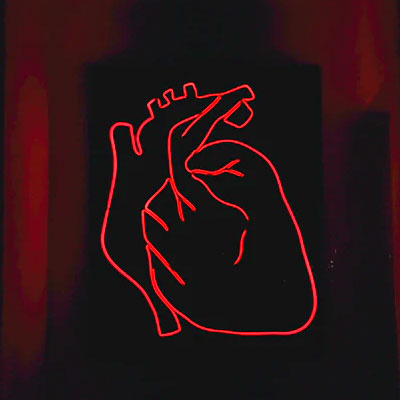Is the Mainstream Ever Wrong…At Least Within Our Own Lifetimes? The answer would obviously be “yes” if not for the qualifier after the ellipsis. We no longer believe the sun goes around the Earth. However, the Copernican revolution took hundreds of years. With the rapid communication allowed by the internet, it is possible that scientific revolutions or paradigm shifts, to use Thomas Kuhn’s phrase, may occur more quickly, especially if scientists are as dispassionate, objective and rational in processing information as computers. That this is not the case is suggested by the physicist Max Planck’s famous quote: “a new scientific truth does not triumph by convincing its opponents and making them see the light, but rather because its opponents eventually die, and a new generation grows up that is familiar with it.”[1]
I consider myself to be an active participant in Science, if not a practicing scientist, the difference being that I don’t depend on grants for my salary. My interest is the pathology of blood flow, and my goal is to build a case for its basic role in human disease. I see this as a paradigm shift and feel blessed to not depend on grants for my livelihood. As Edward S. Weiss noted in his review “Reflux, revolution, and the role of forgotten research in medical paradigms,” “researchers outside the mainstream may continue to investigate older approaches, earning the scorn of their colleagues and collecting very little in the way of grant money and prestige.”[1] Naturally, this situation decreases the chances that a paradigm shift will occur. At the risk of sounding pompous, I feel that freedom from the need for grant support allows me the freedom to seek the truth, which in the case of atherosclerosis, lies outside of the mainstream.
In a sense, and I’m painting with broad strokes here, most successful grant applicants are to Science what Thomas Kinkade, the “Painter of Light,” was to Art. An estimated one in every twenty homes in the U.S. has a Kinkade, and he reportedly earned $53 million between 1997 and 2005. He received numerous awards, but his work is reviled by critics (examining the relative value of critical versus popular opinion is beyond the scope of this discussion). Would it be better to be to Science what van Gogh was to Art? Van Gogh supposedly only sold one painting in his lifetime.
Thomas Kuhn felt that science was an arational [sic] process that does not converge with the truth. [2] This makes it even less likely that a paradigm shift will occur. As an active participant in Science, especially as one whose beliefs fall outside of the mainstream, and as one who has engaged in David and Goliath-like
interactions with the mainstream, I feel entitled to an opinion on Kuhn’s work. Sadly, I think in the short run, Kuhn is correct because of the dichotomy personified by Kinkade and van Gogh.
So, there are non-scientific factors which make a paradigm shift less likely, or at least delayed. This is not surprising, because as Kuhn recognized, scientists are human, and not as dispassionate, objective, and rational as computers. What does a paradigm shift look like, when one finally occurs? I think a good illustration is offered in the movie “Moneyball.” In the movie, Billy Beane, the General Manager of the Oakland Athletics baseball team, uses new statistical methods to evaluate talent, not the gut instinct of scouts. Of course, Billy was scorned. In the movie, the owner of the Boston Red Sox tells Billy that the “first man through the wall always gets bloody.”
Of course, the baseball establishment is not known for forward thinking, making paradigm shift more difficult than it has to be. Is paradigm change smoother in the arts or Academia? In the 1960’s, academic music composers favored an atonal, highly systematized method of composition called Serialism, and dominated traditional composers, even though the work of traditional composers was preferred by most audiences. [3]
”Dominated” is the key word. Many now maintain that the Serialists took over academia, insuring that their quasi-scientific method, which was ideal for the university, was the only one encouraged. As they gained prestige, the argument continues, they took control of grant-giving bodies, new-music ensembles and competitions. Everyone else was shut out, especially those reactionary tonal composers. [3]
How about this for condescension, from a 1979 textbook on composing:
While the tonal system, in an atrophied or vestigial form, is still used today in popular and commercial music, and even occasionally in the works of backward-looking serious composers, it is no longer employed by serious composers of the mainstream. [3]
The scorn of the mainstream was effective: “To be a tonal composer in the 60’s and 70’s was a deeply dispiriting experience. One was shunned as the last teen-aged virgin.” [3] The Serialists’ domination was temporary, but this story illustrates that even the most obvious wrong-headedness can hold sway for a time with effective use of scorn and withholding of resources.
What about physics, long-held to be at the top of the scientific pyramid by virtue of being the hardest science. Are physicists above unscientific behavior? The story of Niels Bohr and the Copenhagen interpretation of quantum mechanics is illustrative.
His [Bohr’s] favor could make a man’s career, and his disfavor could stifle it. As he grew older, he drew his personal circle of physicists ever more protectively about himself. His long-time assistant and collaborator, Leon Rosenfeld, in particular, became almost fanatical in his devotion to shielding Bohr…from attack by young Turks…. [4]
Bohr and his followers believed that the act of observation directly interacts with experimental objects, causing “collapse of the wave function.” [5] Erwin Schrodinger, creator of quantum mechanics, was so put off by the unscientific nature of this speculation that he created the famous thought experiment of the cat who was potentially exposed to a fatal dose of radiation within a closed box, and whose fate was not determined until the box was opened. Prior to observation, the cat was felt to be in a hybrid state, both alive and dead. Such was the power of Bohr and his followers that this thought experiment, intended to show how ridiculous the Copenhagen interpretation was, instead was taken to heart, perhaps demonstrating the superior intellect of those able to accept this mind-bending scenario and join the club.
The founders and followers of the Copenhagen interpretation advocated their philosophy of physics…as the only feasible one. Attempts at basically different approaches, albeit by such prominent scientists as Einstein, [and] Schrodinger…were dismissed and ridiculed.
The orthodox exaggerated the difficulties of the opposition stand while ignoring their own….The orthodox did not merely misrepresent the opposition’s stand-they trivialized and often deliberately caricatured it. [6]
Bohr and his followers opposed the work of Hugh Everett, whose interpretation of quantum mechanics, the Many Worlds theory, was based on a literal interpretation of the equations. In the 1970’s, as Everett’s interpretation was gaining credence, Rosenfeld took to attacking not only Everett’s theory, but the man himself, conduct described as a “mini-jihad.” [7] Now that Bohr and his personality cult have died, Everett’s interpretation continues to gain ground against the Copenhagen interpretation. However, because neither interpretation has yet to make a testable prediction, the debate about the correct interpretation of quantum mechanics continues. Rosenfeld’s ad hominem attacks on Everett didn’t even start on a firm scientific basis.
So we see unscientific behavior by scientists and bad behavior by the mainstream in a broad range of human pursuits, from baseball to the arts to Science, when a core belief is challenged: maintenance of hegemony using scorn and denial of resources to the outsider. What about Medicine? Our generation has seen a paradigm shift, the acceptance of Helicobacter pylori as the cause of peptic ulcer disease. This paradigm shift occurred in only 11 years, from Marshall and Warren’s 1983 presentation at the Second International Workshop on Campylobacter Infections in Brussels entitled “Unidentified curved bacilli on gastric epithelium in active chronic gastritis” [8] to an 1994 NIH statement that ulcer patients with H. pylori infection require treatment with antibiotics. Naturally, there was initial resistance to the idea that peptic ulcer disease was caused by bacteria. [9] What accounts for the rapid paradigm shift?
First, there was no mainstream consensus about the cause of peptic ulcer disease. This was written in 1988:
Traditionally, treatment was based on the principle that excessive secretion of acid was the sole cause of ulcer symptoms. A proposed role of psychologic stress also gained wide acceptance. The belief that one could “cure” or prevent ulcers by reducing stress, avoiding certain foods, and taking antacids prevailed until the 1970’s.
…As the knowledge of gastric physiology and ulcer pathogenesis evolved, a major revision in concepts or lifestyle-related risk factors became necessary. The popular notion that psychologic factors play an important role in the genesis of peptic ulcer disease is now known to have no firm basis in fact. [10]
Thus, the hypothesis that bacteria cause peptic ulcer disease was introduced to a medical community, which while not a tabula rasa, at least did not have a de facto mainstream position. Indeed, the fact that received wisdom had been proven wrong relatively recently may have made the medical community more receptive to a new hypothesis. Anecdotally, I remember the frustration of physicians who treated these patients for years with often only temporary success, providing supportive therapy through multiple episodes of hemorrhage. The hypothesis that bacteria cause gastric ulcers was easy to test, and an answer was quickly had. Patients responded to intervention with antibiotics better than antacids or surgery, and this soon became obvious to clinicians. Ultimately, data and the scientific method triumphed over human prejudice, as they did for Copernicus. Thus, I think that in the long run, Kuhn is wrong. Science can converge with the truth.
Testing a hypothesis regarding the cause of atherosclerosis, whose course is much less predictable than gastric ulceration, is problematic. Patients with severe atherosclerosis may die from some other cause, while patients with mild atherosclerosis may suffer a cardiovascular death before coming to medical attention. Further, intervention after a cardiovascular event, as with thrombolytics, is not proof of what caused the underlying atherosclerosis. In addition, therapy with cholesterol-lowering agents is partially effective in preventing cardiovascular disease, decreasing the perception of need for a paradigm shift. Hopefully, analysis of the failure of HDL-raising therapy to prevent cardiovascular disease will raise questions about the correctness of the mainstream, raise awareness of the role of blood viscosity in cardiovascular disease, and bring the paradigm shift closer. Buckminster Fuller advised, “You never change things by fighting the existing reality. To change something, build a new model that makes the existing model obsolete.” There is no doubt
that when the role of blood viscosity in atherosclerosis is appreciated, existing therapies will be obsolete, in the same way as antrectomy is used very rarely today for peptic ulcer disease.
References:
2. Horgan J. The End of Science, Broadway Books, New York, p. 42-3, 1996.
3. Schwarz KR. In Contemporary Music, a House Still Divided.
4. Byrne P. The Many Worlds of Hugh Everett III. Oxford University Press, Oxford, p.89, 2010. 5. Ibid., p 103-4.
6. Beller M. Quantum Dialogue, The University of Chicago Press, p.277, 1999.
9. Thaggard P. How Scientists Explain Disease, Princeton University Press, p. 56, 1999. 10. Friedman GF. Peptic Ulcer Disease, CIBA-GEIGY Clinical Symposia 1988; 40(5): 2-3.



Comments are closed.